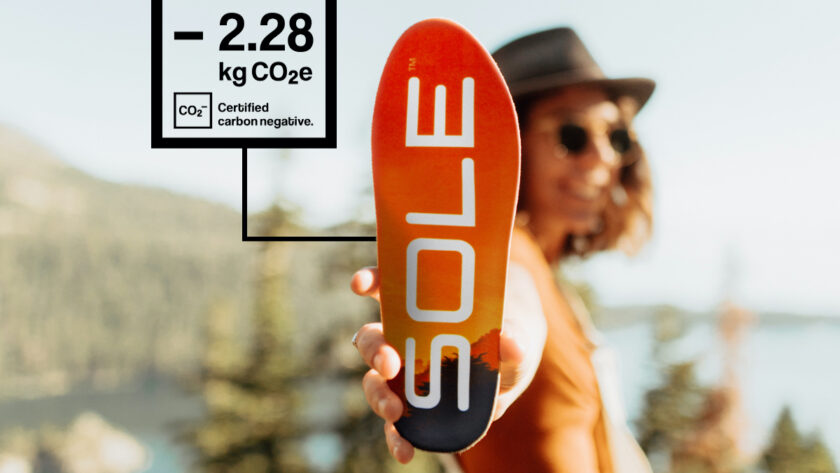Canadian footwear manufacturer Sole has for 20 years focused on creating shoes that allow people to live active, pain-free lives.
Now the company is ramping up its commitment to having the least possible impact on the planet as well.
The Vancouver-based company has launched CO2negative, an initiative to promote and facilitate accurate climate impact labelling on consumer products and certify carbon-negative products.
The initiative follows Sole’s commitment to labelling all core-line products with precise CO2e impact data so that customers can make informed purchasing decisions.
“CO2negative is founded on the conviction that businesses can, and must, do more to accurately account for their impact on the planet and that consumers deserve the information they need to make properly-educated climate-conscious purchasing decisions,” says Mike Baker, founder and CEO of Sole, ReCork and CO2negative.
“Simply reducing harm is not enough, we need to repair and remediate the damage that has been done to our planet.”
There is a growing voice in favour of creating apparel labelling which spells out the product’s climate impact. But with the lack of regulatory interest in the concept right now, some savvy companies are taking the matter into their own hands, creating a point of difference with rival brands and helping to educate consumers on the true impact of their purchase on the environment and climate change.
The brand’s new CO2negative Certified Carbon Negative insole range, the Performance footbed collection, uses ReCork cork. That gives the Performance Medium footbed shoe a carbon impact of -2.28kg CO2e (carbon dioxide equivalent) – equivalent to removing 2.28kg CO2e from the atmosphere.
The negative rating comes down to the sustainability of natural cork which is harvested from the bark of carbon-trapping cork oak trees, without ever cutting a tree down. For every 1kg of cork harvested, cork oak forests sequester an average of 55kg of CO2 from the atmosphere. CO2negative accounts for this sequestered carbon when calculating the final impact of products made with natural cork.
Baker says the core of CO2negative’s ethos is that when it comes to carbon, neutral is not enough.
“In the face of the climate crisis, it falls on businesses to ensure their impact on the planet is not only carbon neutral, but carbon negative: removing more greenhouse gases from the atmosphere than they add.”
Put simply, products created using enough cork will often be carbon negative: all the greenhouse gas emissions associated with the product’s life cycle will come to less than the CO2 sequestered by cork oak trees while growing the cork used in the product.
By accounting for the role of cork forests in their calculations, CO2negative hopes to highlight the benefit of using existing materials that are good for the planet, in place of petroleum-based foams and plastics.
Sole has committed to being Carbon Negative from next year. After the end of this year, the company will calculate its carbon contribution for the year and offset 110 per cent of all emissions through ReCork tree-planting initiatives.



